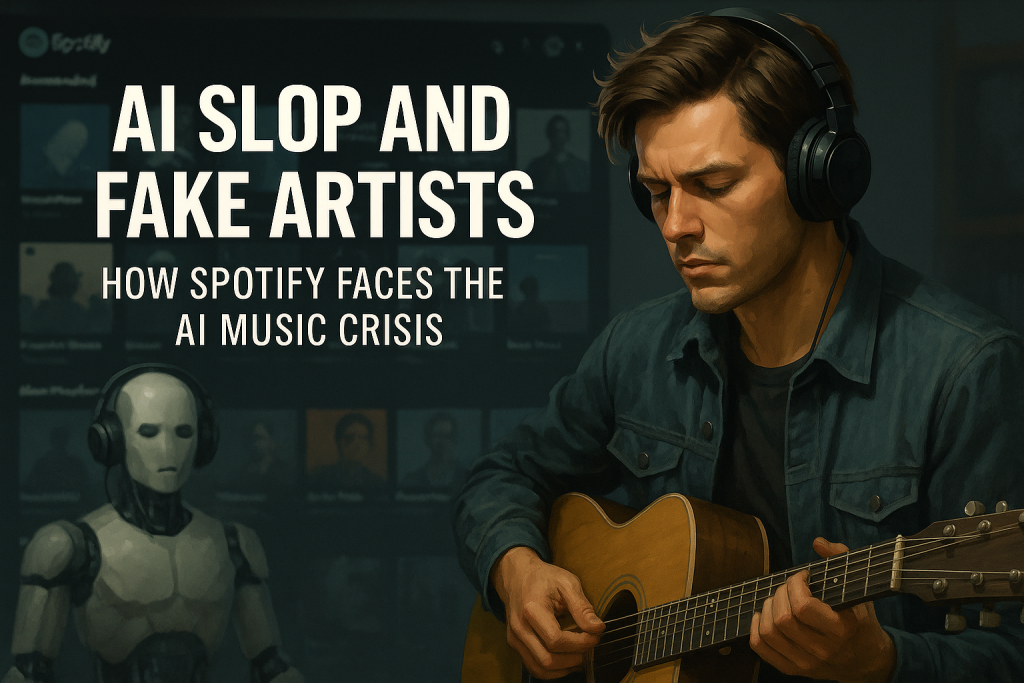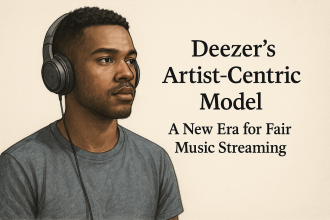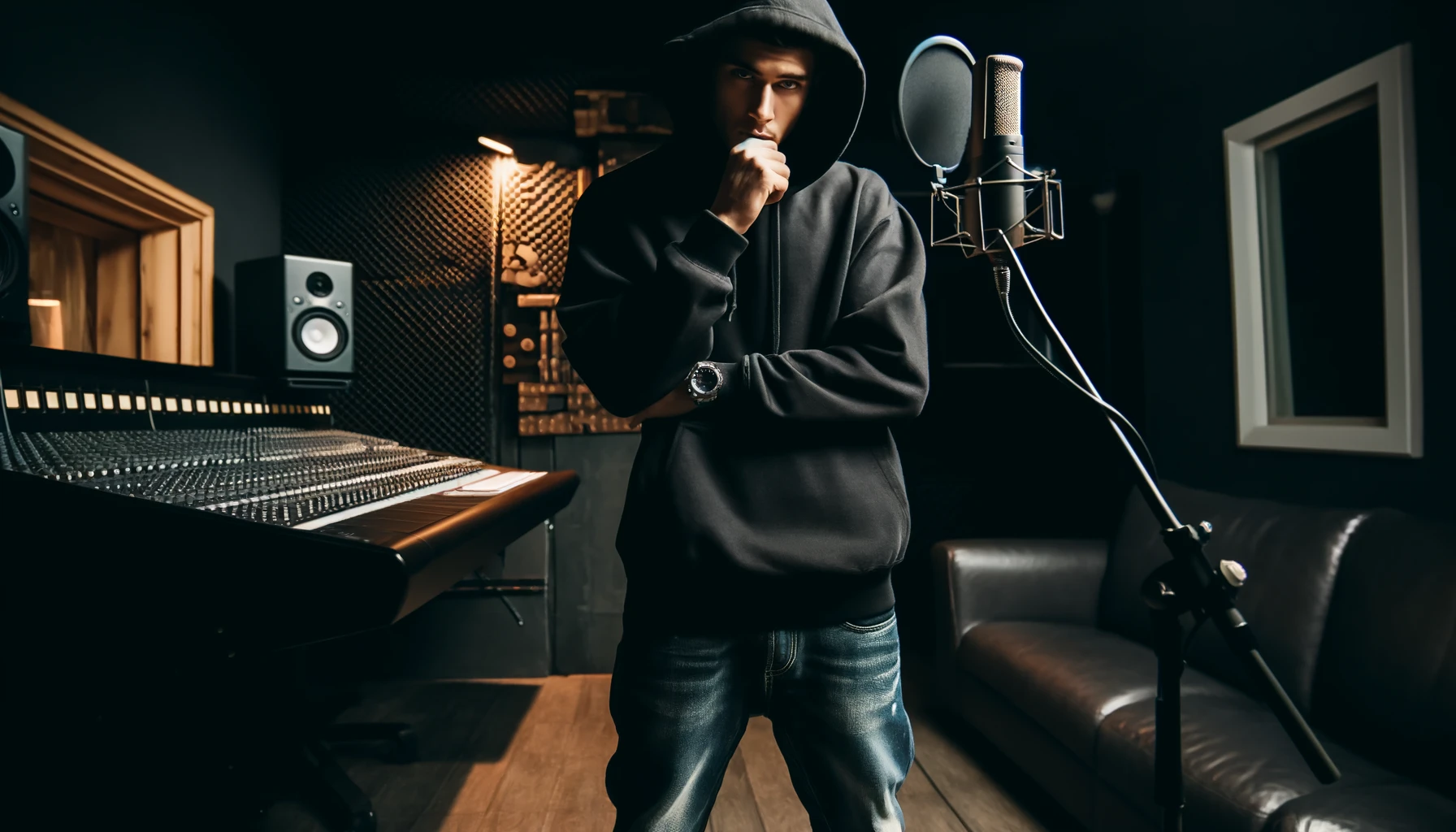What’s Really Happening on Spotify?
Introduction: When Music Meets Machine Learning
The rise of generative AI has transformed the music industry at an unprecedented speed. Platforms like Spotify now face a tidal wave of artificially created tracks — some experimental, some spammy, and others outright deceptive. This phenomenon has been labeled by critics as “AI slop”: low-effort, mass-produced songs that flood catalogs, playlists, and algorithms. But the issue goes far beyond quality. Fake artists, cloned voices, and ghost accounts are reshaping how streaming platforms work, and how real musicians earn a living.

What Is “AI Slop” in Music?
“AI slop” is a term borrowed from online culture to describe content that feels cheap, repetitive, and algorithmically generated without artistic intent. In music, it refers to tracks produced by AI tools in bulk — often short, formulaic, and optimized to exploit streaming royalties.
Characteristics include:
- Minimal creativity: recycled chord progressions, generic beats, synthetic vocals.
- High volume publishing: thousands of tracks uploaded daily, overwhelming platform moderation.
- Algorithm gaming: optimized metadata, misleading keywords, and artificial playlists.
While not all AI-assisted music qualifies as slop, the flood of low-quality content makes it harder for listeners to discover genuine artists.
The Rise of Fake Artists
The debate escalated when investigations revealed so-called fake artists on Spotify — anonymous names releasing generic background music, sometimes generated by AI, often placed directly into playlists curated by the platform itself.
This sparked several controversies:
- Royalty reduction: Critics argue Spotify saves money by featuring low-cost “fake artists” instead of licensed musicians.
- Transparency issues: Listeners often cannot tell whether they’re streaming a human creator or an AI template.
- Trust erosion: Artists fear their work is being sidelined in favor of synthetic catalogs with higher margins.
One recent case is The Velvet Sundown, a completely AI-generated band that accumulated millions of streams before the truth was revealed. This blurred the line between artistic creation and algorithmic simulation.
The Ghost Artist Controversy
Beyond AI slop, Spotify has been accused of cultivating “ghost artists” — pseudonymous accounts tied to a program known as Perfect Fit Content. These tracks were allegedly produced or commissioned cheaply to fill playlists like Peaceful Piano or Deep Focus.
While Spotify denies wrongdoing, the suspicion remains: are platforms prioritizing profitability over authenticity? For independent musicians, this controversy highlights the risks of competing not only against major labels but also against synthetic or in-house content.
Why It Matters for Real Musicians
The surge of AI slop and fake artists has real consequences:
- Revenue dilution: Every synthetic track takes a share of streaming royalties, shrinking payouts for human musicians.
- Listener fatigue: Saturated playlists reduce trust and engagement, as users struggle to find authentic music.
- Cultural homogenization: When AI defaults to Western pop templates, diversity in global music suffers.
For indie creators already battling algorithm changes and low per-stream payments, this new wave of synthetic competition feels like yet another uphill battle.
Spotify’s Response: A Balancing Act
Spotify has announced new guidelines:
- Removing spammy uploads (over 75 million tracks deleted in the past year).
- Requiring AI disclosure in metadata, in collaboration with DDEX standards.
- Banning unauthorized voice cloning and deepfakes.
Yet, the company insists it will not ban AI music entirely. Instead, it aims to strike a balance between innovation and integrity — a position that leaves many musicians skeptical.
Conclusion: A Fork in the Road
“AI slop” is more than a meme — it’s a symptom of a deeper structural issue in streaming. The tension between quantity vs. quality, authenticity vs. automation, and profit vs. artistry defines the next era of digital music.
For listeners, transparency will be key. For musicians, the fight for fair recognition is only beginning. And for Spotify, the question remains: can the platform embrace AI without eroding the very trust that made it the world’s top music service?
![]()














